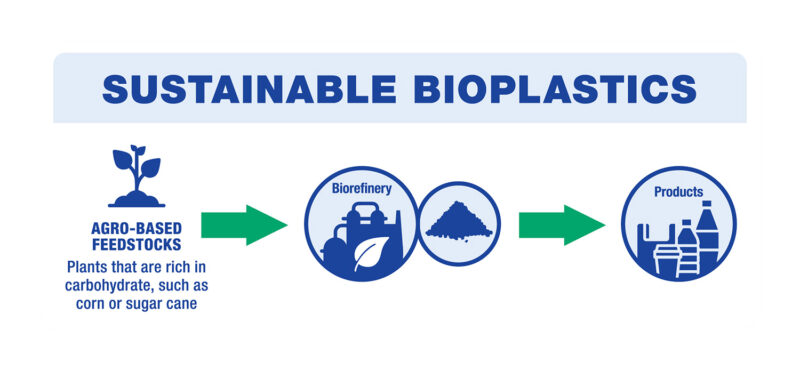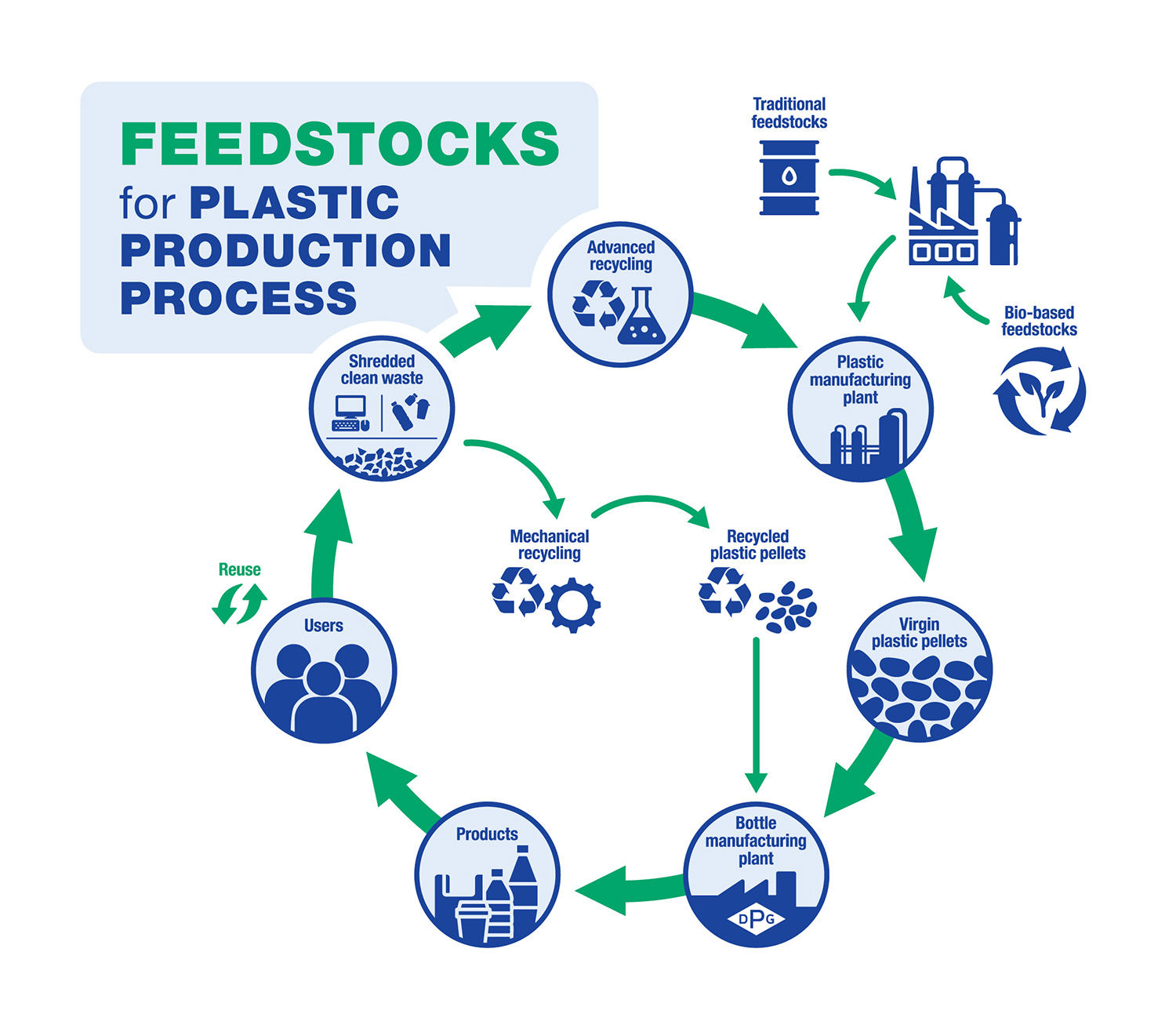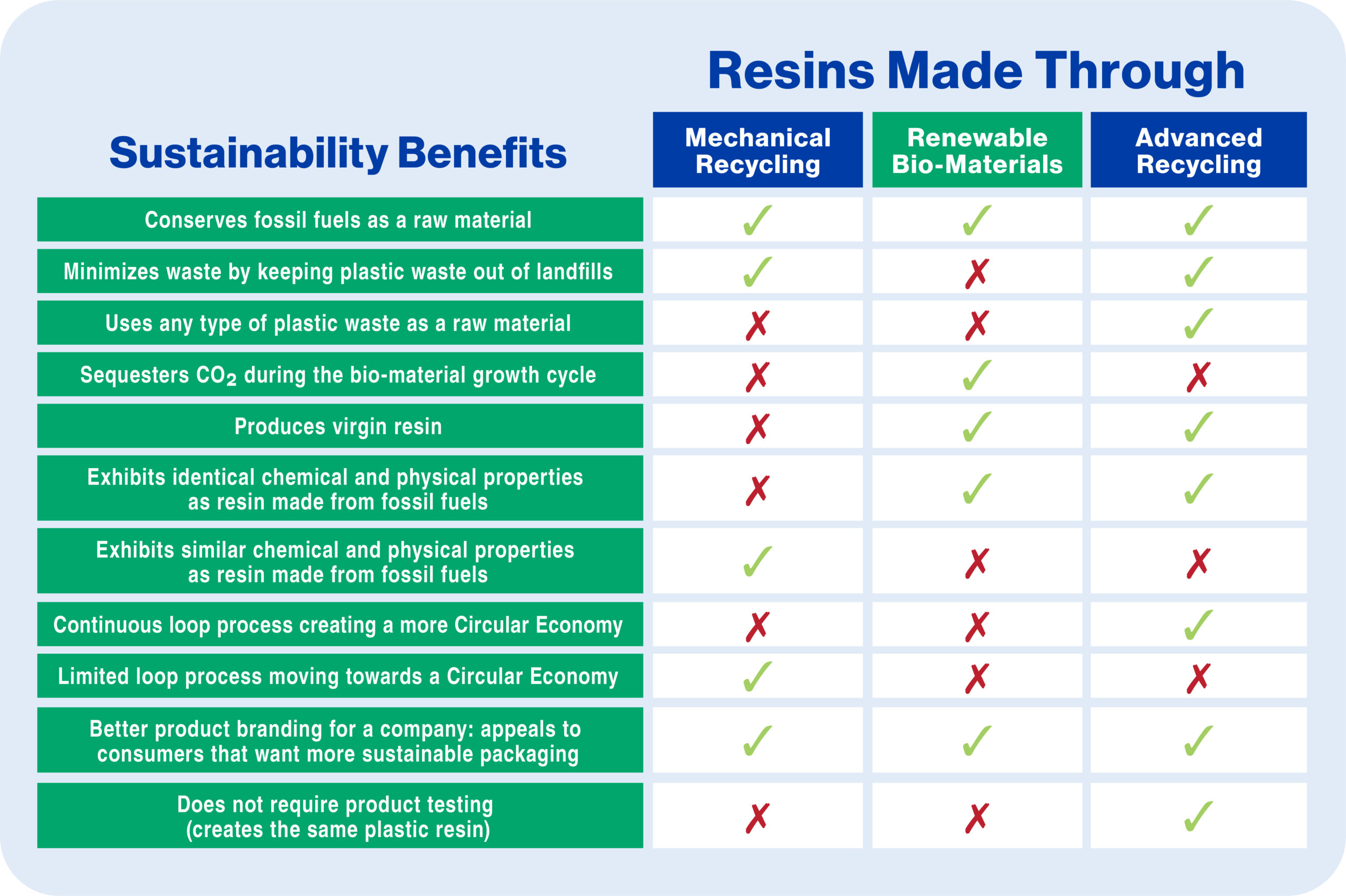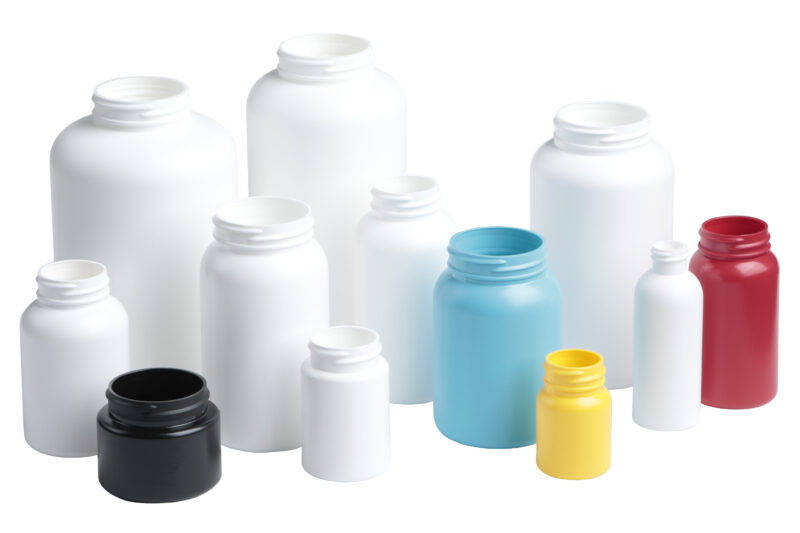Bioresin Produced from Sustainable Crops
Sustainable crops, like sugarcane and corn, can be used to create ethanol that serves as a feedstock for bioplastics.
Polyethylene resin made from sustainable crops is chemically and physically identical to plastic resin made from fossil fuels, since the supply feedstocks produce the exact same virgin resin.
Bioresin made from sustainable materials has a lower environmental impact than plastic resin made from fossil fuels.

This graphic depicts how bio-based feedstocks are used to produce virgin resin, and also shows the three other polyethylene resin production processes:
- Virgin resin production from fossil fuels
- Post-Consumer Recycled (PCR) resin produced through the Mechanical Recycling process
- Virgin resin produced through the Advanced Recycling process
Bioresin is chemically and physically identical to petroleum-based plastic. The feedstock this source supplies produces the exact same ethylene molecules, which then create the same virgin plastic.

How to Choose
When designing plastic packaging, resin selection is an important step in the process. There are notable differences between resins and much to consider during selection.
Since Bioresin is derived from renewable resources like sugarcane, it helps to reduce reliance on fossil fuels, like oil and natural gas.
In addition to producing virgin resin, plants grown to make Bioresin can actually sequester more CO2 than it takes to produce plastic products, potentially making Bioresin net negative for greenhouse gas emissions.

Read our article and learn more about Bioresin and how making the switch can help you positively affect the environment, lessen reliance on fossil fuels, and reduce greenhouse gas emissions that damage the environment.

Contact Us for More Information
